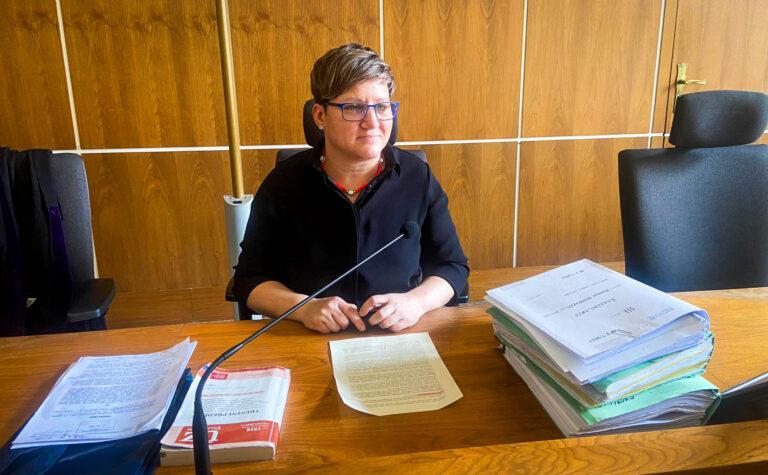Czech Judge Dita Řepková for Romea.cz: The behavior of the defendant in the case of the death of a Romani man in Brno met the definition of necessary self-defense in the Criminal Code

According to presiding Judge Dita Řepková, the actions of Roman Rohozin, who has been acquitted of culpability for the death of a young Romani man in Brno last year, unambiguously met the definition of necessary self-defense set forth in the Criminal Code. The judge made that statement in an interview with news server Romea.cz and openly expressed her view of the decision to acquit the defendant, explaining the reasons which led to the verdict and reflecting on the questions raised by the case with regard to the rule of law and social justice.
Q: Why did you acquit the defendant, what were the main reasons?
A: I have to say that we made this decision because it was a decision by a panel, not just by me, so I am speaking for the court as a whole. The reasons have been stated unambiguously in the justification. We are of the opinion that the actions of the defendant, as they were proven on the basis of testimony, met the definition of necessary self-defense as set forth in our Criminal Code.
Q: The defense attorney said the defendant apologized during the criminal proceedings, and the defense attorney also said the defendant is intelligent. Didn’t it seem paradoxical to you all that an intelligent person was carrying a weapon and using it in a country as safe as the Czech Republic?
A: It is necessary to understand that the defense argument was never refuted. He said he had the knife with him because he had food with him, meat and cheeses, and they were going to have a picnic at the reservoir. That means he was not wearing the knife on his belt, although one witness said he believed he had the knife behind his belt. What was proven was that he had the knife in the backpack from which he took it. We believe the defendant is not a person who would usually carry a weapon in the form of a knife and that he brandished it in such a way as to intimidate the others.
Q: The criminal proceedings found he was wearing the knife, though…
A: No, he said he acquired the knife and had it with him because they were going to have a picnic. I do not have any reason whatsoever to deduce that he is a person who regularly wears a weapon.
Q: You said the self-defense was actually adequate with regard to the assault, do you still believe that to be the case?
A: It’s not absolutely possible to use the term “adequate”. The actions of the defendant showed every indication of meeting the definition of necessary self-defense as we understand it in the sense of the Criminal Code and of the case law I referenced in the reasoning. It is also the case that bodily harm happened and, above all, that a young person died. That is unfortunate and can’t be ignored. On the other hand, we will not criminalize behavior governed by what the law considers necessary self-defense. That would harm our principles of a fair trial. In the Charter [of Fundamental Rights and Freedoms] you naturally have the right to defend yourself and save your life. If we were to lower the value of saving human life, we would enter the realm of the debate in society as to why the murder rate is rising in our country. We have limits set forth by the Criminal Code and they were clearly upheld in this case.
Q: Did you consider the injured parties’ testimonies unbelievable?
A: The injured parties’ testimonies were believable in part, which I stated. In terms of fact, they supported the defendant’s testimony with regard to the conflict on the tram and after they disembarked. It is true that none of the injured parties could testify as to the specific moment at which the knife was used, as they were not aware of when exactly that was. I am of the opinion that on that point, the memories which were testified to worked in favor of the injured parties.
Q: Can we learn anything from this case, from the perspective of society?
A: I would like to say that this case is nothing special or extreme when it comes to self-defense. Such situations do transpire, unfortunately, and we are witnesses to that fact. What can be learned from this? Simply put, don’t ever assault anybody, because at the moment of such an attack, we must count on the victim being able to defend himself using means the assailant may not like.
Q: Could this be a message to those involved in such situations?
A: This is not a message, we have known the concept of necessary self-defense since the days of the Austro-Hungarian Empire. This case is not at all exceptional. You, the media, turned it into a sensation. Simply put, this was an assault, violent criminal activity and a defense against that activity. Don’t look for anything else in it, don’t draw any other conclusions from it.